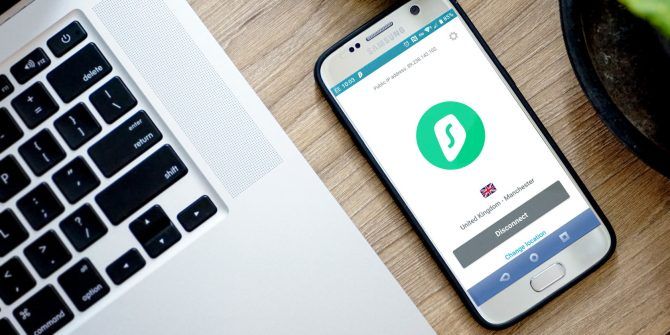
As the Internet grows in popularity and the number of users increases every year, your privacy and safety while browsing online becomes increasingly important. VPNs (Virtual Private Networks) are becoming one of the most popular tools to assist with this. At its most simple, a VPN is used to make it appear that you're browsing from anywhere in the world. This is done by replacing the IP address that shows when you're browsing online which, when not changed, can be easily used to locate where you're browsing from and what you're looking at. Using a VPN will allow you to:
1. Encrypt your IP address, making it impossible for people, including your Internet service provider, 3rd party agencies, and any network admins to read or trace.
2. Make your browser more secure from those that may try to hack you through public WiFi networks.
3. Access websites that may be blocked by the country you're browsing from.
This is quickly becoming one of the most popular uses for a VPN. If you live in a country with restricted Internet viewing, a VPN can make it seem that you're browsing from a different country and makes it possible for you to look at otherwise blocked content. This enables you to have free access to information without being restricted, empowering people with freedom of press.
What's a VPN?
To get into a little more detail, a VPN can be split into several core components:
A VPN client: This is the piece of software you can download and use to access a VPN service through your computer or device. This is also called a VPN app.
VPN protocol: This is the process of your computer or device that has your VPN client installed, connecting to a VPN server to access its benefits.
VPN server: This is what the VPN client connects to, so that you can change your IP and have a secure and unrestricted browsing experience.
VPN service: Finally, the VPN service is the company or provider of the VPN that you can access. This company will provide you with the software and instructions to access their VPN server. This might also be called a VPN provider, similar to your Internet service provider, for example.
How does a VPN work?
A VPN uses the steps above to encrypt your Internet browsing experience. A VPN essentially adds an extra step when you're browsing online that happens instantly and in the background, so that you'd never notice. Rather than using the IP of your local server, you instead connect to the VPN server, which could be located in any country. When you then browse the Internet, you can make it look like you're browsing from the USA based on your server address when you're actually located in the UK. This makes your location anonymous, which makes it impossible for websites to collect personal information about you or to identify where you are.
If you don't use a VPN, everything you do online can be traced back to your exact location, as well as the device you're using. This is an apparent invasion of privacy and can also be used for highly direct marketing and to create a profile on who you are and what you're looking at.
VPNs also unblock content around the world. A simple and popular use for this is to watch videos on streaming services that are blocked in different countries. If you're in the UK, you may find that the content on a streaming service is limited compared to those in the USA, even though you pay the same amount each month for access, for example. China is notorious for strict walls around what information people can view to restrict the type of content or press they can see. This can be viewed as a restriction in the freedom to consume information from different points of view, and a VPN breaks down these walls and allows you to view content from different countries and perspectives.
Why should I use a VPN?
There are several main reasons that people choose to use a VPN service:
1. To protect your location and browse online anonymously
2. Encrypt your IP to stop 3rd parties like your ISP or the government from being able to see what you're viewing online.
3. Remove restrictions on what websites you can view online put in place by the country you're browsing from, or that's exclusive to a specific country.
4. Make it possible to stream, download, or torrent media.
5. Save money by changing your location when buying flights.
6. Add a layer of protection from people that try to hack others through public WiFi networks.
7. Protect personal information, including your address, passwords, photos, and card details when browsing online.
Are VPNs safe to use?
Most VPN service providers are generally safe to use, but take some time to browse the options available and read their reviews to ensure you're using a well-known and tested VPN service. There are plenty of good cheap vpn services as long as you do some research. The main VPN services to avoid are the ones that are entirely free to use. These are generally not maintained well and can have issues that might cause a threat to your privacy. One study found that over 80% of free VPN apps you can download on Android devices were found to leak data.
Are VPNs legal?
Across the west and in the developed world, VPNs are completely legal to use, and some huge companies use them every day to protect their own data. If you have a personal VPN, though, use it with care if you travel to places like the Middle East, as some countries dislike the use of VPNs that enable you to bypass the restrictions they have put in place online.

Smartphones, tablets, and wearable devices make up mobile devices. With the digital age, mobile tech support is a need because people are relying on mobile devices to communicate with family, friends, and the workplace.
If you have any issues concerning your mobile device, IT support comes to the rescue. But how do you know that you need IT support?
Below are the signs you need mobile IT support:
Mobile Not Compatible With Business Communications System
Mobile devices are flexible alternatives to corded telephones or landline phones, and every business establishment should have dedicated mobile devices for faster business transactions. However, there are compatibility issues with mobile devices if you need to use them frequently for your business dealings.
For instance, Android devices are open source and are compatible with apps downloadable in Google Playstore. If you use business apps outside of Google Playstore, they may not be compatible with your Android devices, so you need IT support to ensure that your mobile and business apps, like doctor-client appointment app, match and are properly configured.
That's why you need to hire a professional IT support Colorado to help and assist you.
Hardware Issues
Smartphones and tablets are sometimes dropped, causing cracks, LCD issues, and touchscreen problems. If you have a malfunctioning mobile device caused by a fall accident, you need to have it repaired immediately to avoid the problem from getting worse.
Software Issues
Your mobile will definitely need IT support if it's exhibiting software issues. For instance, an operating system (OS) issue arises because of outdated software, which would require an update.
Below are some of the common signs of software issues needing IT support:
● Battery Issues: Battery drain is a common software and hardware issue at the same time. Most often than not, batteries fail to perform at their maximum potential because of too many apps running. Unnecessary apps put a strain on the battery, so the best option is to uninstall the app.
Usually, a software update is needed to ensure that the app is up-to-date to avoid straining battery performance.
● Connectivity Issues: Connectivity issues, like WiFi and Bluetooth issues, arise if there's a crowded channel or login issues. Usually, resetting your WiFi router can resolve the issue.
However, if you have a business mobile phone, you have to ensure that it's a hundred percent connected to your internet, and an IT support specialist can be contacted to check internet configurations.
● Signal Issues: No network or signal issues can be a problem with your telecommunications provider. However, if signal problems cannot be ruled out, you need IT support to rule out the source of the problem.
The IT specialist will check if the problem is with device compatibility or a network selection problem.
Signs of Mobile Security Hacks
Mobile devices rapidly overtake home devices when it comes to the number of users. According to research, by 2020, the estimated smartphone users worldwide will be around six billion. It only goes to show that mobile devices are rapidly replacing desktop or personal computers, both at home and in the office.
With the increasing use of mobile devices, there's also an increase in the threat vector because mobile devices are now used in processing payments. Many users are at risk for mobile security problems.
Cybercriminals tend to capture credit card information and data on digital wallets because most businesses are now accepting mobile payments.
However, signs of a mobile malware attack are harder to determine as compared to cyber computer attacks - it's not as obvious or straightforward as a computer virus. That's why IT support plays a vital role in evaluating and resolving mobile security hacks.
Here are some signs of a mobile device malware attack:
● Your mobile device suddenly starts to operate slowly.
● Your smartphone battery drains faster than it used to or sooner as expected.
● There's a sudden noticeable drop in the performance of your mobile device.
● A sudden increase in your data usage because cybercriminals are trying to access the web to transmit data from your mobile phone.
● A strange charge on your telecommunications monthly bill due to some malware making money by sending premium text messages from your mobile phone without your knowledge.

Storage Issues
Mobile devices have very limited storage systems. If you want to use your mobile devices as business tools, you need to hire an IT support to set proper storage configurations and provide you other storage options, like linking your mobile with the cloud storage.
Conclusion
Your mobile device is an essential communications tool, not only to connect with your family and friends, but also to your boss, colleagues, and clients. That's why any hardware or software issue should be addressed right away with the help of an IT support specialist. In that way, you have peace of mind that your mobile is operating smoothly and securely.

By now, you are probably familiar with the many advantages of using a Virtual Private Network (VPN) to reroute your internet traffic, but do you know how to actually set it up? It's not that hard really, but the steps still can be a bit confusing at first though. After you go through the guide we have for you, that should not be a problem anymore.
Step 1
Download your VPN directly from the Play Store first, because it's by far, the easiest and most natural way to get started with VPN for Android. Make sure that it's a reliable provider like Surfshark, because just like the rest of the apps on the Play Store, not every VPN application you will see is worth your attention.
Step 2

In case you are unable to access Surfshark from your Android device, or if the device isn't compatible, just download the APK file directly from the Surfshark VPN website and you are all good to go.
Step 3
Install the application via Play Store, or with the APK file and follow the onscreen instructions. The Surfshark interface is easy to use and it will guide you through the rest of the process automatically.
You will need to allow some degree of phone access to the application, mostly related to your mobile and Wi-Fi networks, but it will do the heavy lifting all on its own. That's about it really, and by the time you are done, public Wi-Fi connections will be safer, you will be able to access Netflix content from any location in the world (you will still need a paid Netflix account though!) and even your ISP will have no idea about your browsing history. In case you are somewhat interested in the dark web, you should really get a VPN!

The short answer to that question would be a yes, but we are going to go into a lot more details and actually point out practical reasons why we should all consider using VPNs on our smartphones.
What Exactly is VPN?
VPN stands for Virtual Private Network, which provides anonymity to the user. It makes browsing from any device, be it a computer or a smartphone, safer, more liberated and private.
Smartphones are Our Main Media Consumption Devices Nowadays
The PC can still do things that the smartphone cannot and it's not going to go away any time soon. However, smartphones have mostly dethroned laptops and desktops, as far as media consumption and even gaming is considered.
When you are doing almost everything from accessing Netflix to browsing private websites best left unnamed, then your smartphone is under the same security and privacy threats, that your PC would be.
If you don't want your ISP to find out about the list of websites visited by you, and when you want to keep your location private from prying websites all around the web, a VPN is your best bet, even on a smartphone.
VPN Provides Security through Encryption
Every time you use a public Wi-Fi, your data is at risk of being intercepted by hackers. Wi-Fi signals within a college campus, in a coffee shop, or even private connections which a lot of people have access to, are not safe.
VPN provides protection to your data on unsafe networks, through end-to-end encryption. Not that even encrypted data can't be intercepted, but breaking the encryption is no joke!
Liberated Browsing
China has a very restrictive internetpolicy which doesn't even allow Google, Facebook or Netflix, but if you use a VPN, using the banned sites in China is possible!
Now, we are not saying that the local citizens should do that, because we do not know how the government monitors or punishes such violations, but it would be very, very difficult for even them to know where the user is located. If you are just visiting the country though, having a VPN is a must for your entertainment needs.
Aside from that, any website or service, which doesn't allow your region to access them, or vice-versa, will now open up to your smartphone!
Take Netflix for example, not all content is available in all regions, even though you may have a Netflix subscription. With the help of VPN, you can access any regional content on Netflix with your own account.
Which One Should You Use?
Everything we just discussed are the general benefits of using a VPN on your Android smartphone, but just like everything else, not all VPN providers offer the same quality.
Check out this list of 5 Best VPN apps for Android on ProPrivacy, to know which one would be ideal for you. They are all reliable and does the job pretty well, but depending on where you are located and what your budget is, some may appeal more to you than the others.

The battle to secure the internet has been fought for many years. Cybersecurity has remained to be a big challenge for organizations ever since machines in offices go connected to the world wide web. In the early days of the internet, security threats were not as complicated as they are today. Problems facing companies only ranged from a few destructive virus threats to basic scamming attempts. With time though, technology has evolved rapidly and now companies have to deal with complicated cybersecurity threats. Ransomware, data theft, and network disruptions are just some of the threats that face organizations.
The evolution of cybersecurity threats has also prompted an evolution in defense mechanisms. Today, it is not uncommon to see companies that have a fully-fledged cybersecurity department. It is no longer possible to gamble with the security needs of any enterprise. Cybersecurity has thus moved on from being a small aspect of the organization to a core part of every company. There are many great things that have been achieved over the years in the cybersecurity realm, but the many challenges that persist as a result of a rapidly evolving tech realm are just too real to ignore. Jamie Cambell from GoBestVPN recently noted that while it is not possible to completely eliminate threats, it is possible to have better solutions in the market. Recent years have seen companies lose millions of dollars because of security vulnerabilities. Such big losses have prompted companies to think differently. New approaches are being explored in the area of tackling cyber threats.
Security is Now a Core Part of Every Organization

As mentioned earlier, organizations are now taking the cybersecurity issues much more seriously. The security of company data is no longer an issue of the IT departments alone. Instead, it is an organization-wide affair which cuts across all levels of the institution. According to recent reports by Varonis, 41% of companies have been found to leave their data exposed to everyone. Such statistics indicate that the problem is not simply about attacks becoming more complicated. Instead, it is the approach that is taken by organizations that are contributing to vulnerability. Organizations are thus making it a duty to educate every member of the team on the cybersecurity challenges of the modern day.
Indeed, adaptive enterprises have been restructuring their security needs to meet modern-day goals. Security has thus stretched from the small IT department to become a ubiquitous part of daily operations in organizations.
Security is Forcing Technology to Evolve
There are no benefits that come with cyber-attacks. But if there were to be a single positive impact from cyber threats, it has to be innovation. Security in the cyber realms has forced entities to think outside the box. Threats have encouraged innovators to come up with new solutions for a wide range of issues. Indeed, the creativity that has been sparked as a result of security challenges has led innovation not just in the security realm but in the tech industry as a whole. Technologies of the future are now hitting the markets with security implements being incorporated.
Security is Getting Agile

In recent years, testing and analysis approaches have changed in the digital realms. The increasing security threats have forced the industry to adopt agile measures. Cybersecurity solutions are thus now becoming much faster, smarter and robust. The dynamism that has been experienced in the industry has allowed for the faster collection of data, quick analysis and almost immediate response to threats. As security stakeholders develop the next generation of solutions, the lessons that have been learned will definitely prove to be crucial. The collection and use of data are changing and this makes security solutions much more dependable.
What Does the Future Look Like for Security?
The industry will definitely continue to evolve. Cybersecurity issues are unlikely to go away and this will force enterprises and organizations to continue creating solutions. While it is not possible to predict exactly what will happen, it is sensible to assume that new technologies will provide more robust protection. As faster technologies become mainstream, it will be difficult for attackers to beat the pace of strong systems. Businesses will nevertheless need to take security issues much more seriously as the technology moves to the next stages.
© 2023 YouMobile Inc. All rights reserved





